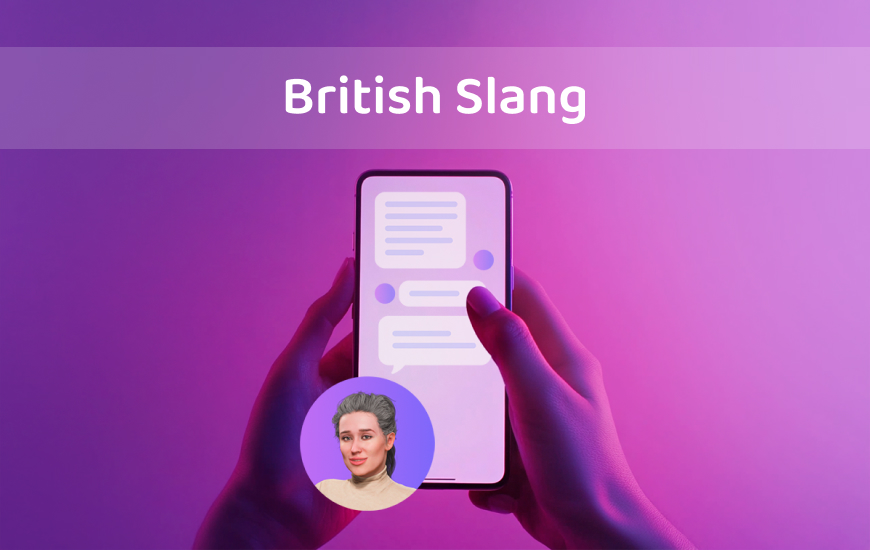Oi, you cheeky lot! Ever found yourself in a British pub, nodding along while someone throws out phrases like “That’s a bit dodgy, innit?” or “Fancy a cheeky Nando’s?”—and you have absolutely no clue what’s going on? No worries, mate. I’m Charlie, your resident British slang connoisseur (and former editor-in-chief, but we’ll get to that later). If you want to blend in on the streets of London—or at least avoid blank stares when someone says “Bob’s your uncle”—this guide will be your secret weapon.
Why British Slang is a Whole Different Ball Game
British slang is an entirely different way of speaking, packed with humor, irony, and history. If you’ve ever found yourself completely lost in a conversation with Brits, here’s why:
1. It Changes by Region
What’s common in London might sound completely foreign in Manchester or Liverpool.
Example:
- In London, you might hear: “That’s proper brilliant!”
- In Manchester, they’ll say: “That’s dead good!”
If you’re traveling around the UK, listen for local phrases—they vary more than you’d expect! It’s a good thing you have me as your trusted AI English tutor, innit?
2. Brits Love Understatement
British people rarely say what they mean directly. Instead, they soften things with humor or irony.
Example:
- “Not bad” (translation: Absolutely fantastic)
- “Could’ve been worse” (translation: That was a disaster)
If a Brit says, “It’s a bit chilly”—they probably mean it’s freezing!
3. A Lot of It Comes from Pub Culture
Many slang words originated in social settings, especially pubs.
Example:
- “Fancy a cheeky pint?” (Want to grab a quick beer?)
- “He’s three sheets to the wind.” (He’s very, very drunk.)
4. It’s Always Evolving
New slang pops up all the time, thanks to pop culture and social media.
Example:
- Old-school slang: “Blimey, that’s a corker!” (Wow, that’s amazing!)
- Modern slang: “That’s absolutely peng.” (That’s really cool/good-looking.)
How to Use British Slang Naturally (Without Sounding Dodgy)
Using British slang is a bit like brewing a proper cup of tea—you’ve got to get the balance right. If you overdo it, you’ll sound forced. If you use the wrong slang in the wrong setting, you might get a few funny looks. Here’s how to blend in and sound more natural when using British slang.
1. Match the Right Slang to the Right Situation
Some slang is great for casual chats, while other phrases are best left for nights out with mates.
Example:
- At a café: “I’ll have a cuppa and a bacon butty, cheers.” (Casual and friendly)
- In a business meeting? Maybe not: “Let’s circle back after a cheeky Nando’s.” (Nope. Keep it professional!)
Remember, if you wouldn’t say it in front of your boss, it’s probably best saved for social settings. If you’re not sure, ask me in the Praktika app!
2. Listen to How Brits Actually Use Slang
One of the best ways to pick up natural slang is by watching native speakers in action. British YouTubers are a goldmine for this.
Watch & Learn:
- Zac Alsop– For modern, London-based slang (great for casual banter).
- Joel & Lia – Two Brits who break down UK vs. US English differences.
- English with Lucy – If you want a balance of proper British English and casual phrases.
Watch a few videos, repeat key phrases out loud, and note how they use slang naturally. You can try role-playing with me in the Praktika’s Practice Zone!
3. Keep It Subtle—Don’t Overload Your Sentences
If you try to cram five slang phrases into one sentence, it’ll sound unnatural. Instead, sprinkle them into your speech like seasoning.
Instead of saying:
- “I was absolutely knackered after legging it to the pub, but the banter was proper brilliant, and Bob’s your uncle, we had a right laugh!”
Use it naturally like this:
- “I was knackered after work, but we had a great time at the pub.”
Start with just one or two slang words per conversation until they feel natural. Practice any scenario you want with me, your favorite AI English tutor!
4. Try It in Conversations (But Read the Room)
Slang is all about timing and audience. If you’re talking to someone who loves using slang, go for it! But if they’re sticking to more formal English, it’s best to match their tone.
Example:
- Talking to a cab driver? “Lovely weather today, innit?” (Friendly, casual)
- Talking to a professor? Maybe stick to: “It’s a nice day.”
The London Experience: Slang You’ll Hear in Chelsea
London is a melting pot of cultures, and so is its slang! But if you’re strolling through Chelsea, you’ll hear a mix of posh expressions, playful banter, and everyday slang that Londoners throw around effortlessly. Here’s how to sound like you belong.
1. In a Café or Pub
Chelsea is full of stylish coffee shops and classic British pubs. Whether you’re grabbing a drink or people-watching from a café window, these slang terms will come in handy:
At a coffee shop:
- “Fancy a flatty?” → Short for a flat white (a popular coffee order).
- “Grab us a biccy, will ya?” → Asking for a biscuit (aka cookie).
At a pub:
- “Pint and a packet of crisps?” → The classic British pub order.
- “That round’s on me.” → If you’re buying drinks for your mates.
2. Shopping on King’s Road
Chelsea is known for its luxury boutiques and high-end shopping. Here’s what you might hear while browsing:
In a clothing store:
- “That jacket’s well swish.” → Swish means stylish or fancy.
- “Bit spenny, innit?” → When something is too expensive (spenny = pricey).
Chatting with a local:
- “Love your new kicks, proper peng!” → Peng means really attractive or stylish.
- “That bag’s the dog’s bollocks.” → Oddly enough, this means amazing!
3. Getting Around
Whether you’re hailing a black cab or hopping on the tube, these phrases will help you navigate the city like a pro:
Asking for directions:
- “Is it a schlep from here?” → Schlep (borrowed from Yiddish) means a long walk or journey.
- “Just nip over to the station.” → Nip over means to go somewhere quickly.
In a taxi:
- “Can you drop me off near Sloane Square?” → The easiest way to sound natural.
- “Cheers, mate!” → A friendly way to thank the driver.
If you want to blend in while exploring London, the best way is to listen to how people talk and practice using these phrases. In the Praktika English learning app, you and I can rehearse real-life scenarios so you’ll feel completely at ease ordering a cheeky flatty or calling something proper swish.
The Ultimate British Slang Cheat Sheet
Here’s a collection of some of the most common and fun British slang phrases you’ll hear:
| Slang | Meaning | Example |
| Cheeky Nando’s | Going for an unplanned, casual meal (often with mates) | “Fancy a cheeky Nando’s after work?” |
| Knackered | Extremely tired | “I’m absolutely knackered after that meeting.” |
| Bob’s your uncle | And there you have it (used after explaining something) | “Just mix the flour, sugar, and eggs—Bob’s your uncle!” |
| Taking the mickey | Joking or teasing someone | “Are you taking the mickey out of me?” |
| Dodgy | Suspicious or unreliable | “That used car looks a bit dodgy.” |
| Leg it | Run away quickly | “We forgot to pay for parking—leg it!” |
| Gutted | Extremely disappointed | “I was gutted when my team lost.” |
| Proper | Very or extremely (used for emphasis) | “That was a proper good film.” |
| Mint | Amazing or excellent | “That new album is mint!” |
| Blimey | Expression of surprise | “Blimey, that’s a big cup of tea!” |
Try slipping one of these into conversation and see how naturally it fits. Don’t overuse them, though—balance is key!
Go on, Give It a Bash!
Knowing when to drop a cheeky “innit” into a conversation is a real skill. Now that you’ve got a solid set of phrases under your belt, it’s time to put them to the test. Practice with me before hitting the streets of London. Join me in the Praktika app, and let’s have a proper chinwag!

From Charlie
Charlie is a former editor-in-chief turned English tutor with a passion for art, culture, and language. With a Master’s in Modern Languages, Literature, and Culture from King’s College London, she’s traveled the world covering major art events. Whether you’re refining your business English for presentations or just want to chat like a true Londoner, she’s got the expertise (and the British charm) to help you master it all.
